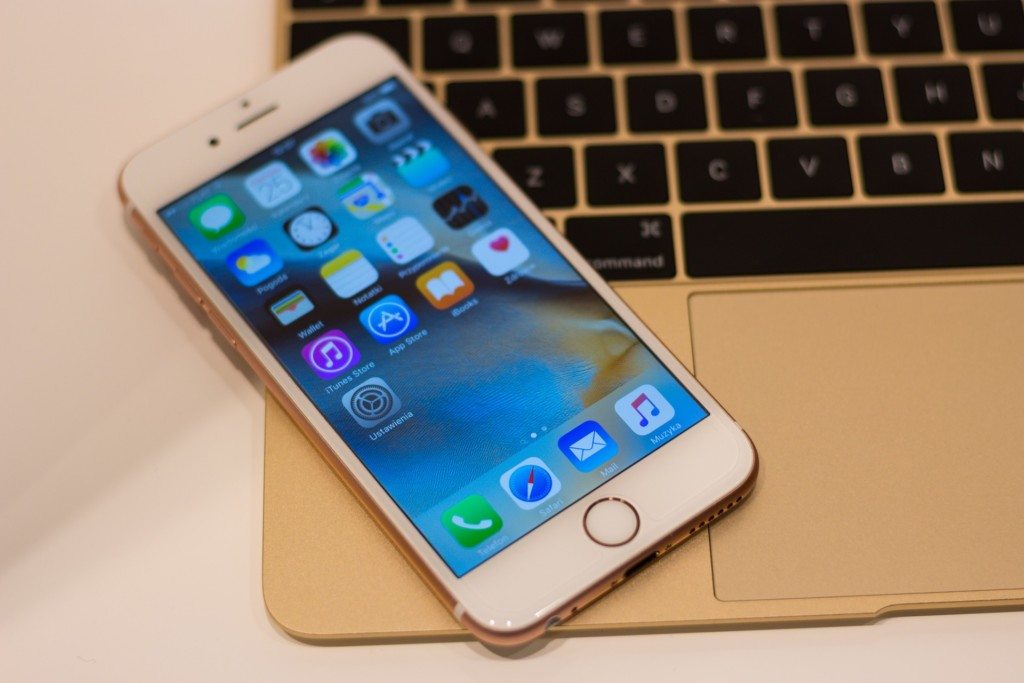Apple has apparently been trying to force Qualcomm to lower its licensing prices recently—talking its ODMs (original design manufacturers) into stopping payment to Qualcomm and agreeing to pay the ODM’s legal fees if they are sued, which they recently were. Apple’s hostile action against Qualcomm is very difficult to parse because it seems incredibly tactical and short sighted.
Clearly, Apple seems to want to get a big discount from Qualcomm, which might give them a slight cost advantage and offset the massive margin pressure the company is under. Apple is somewhat famous for driving supplier costs down to unaffordable levels (One of the sayings in Silicon Valley is, “You do business with Apple once.”). But after a few short months the other phone OEMs would get the same discount, convert it into lower prices, and put even more price pressure on Apple. All this effort and legal cost for even a year advantage seems ill-conceived and Apple isn’t known for being stupid.
So, I think Apple is after bigger game. I believe Apple wants to kill Qualcomm’s R&D investment by massively reducing the company’s ability to fund it and intend to wipe out many of the contract manufacturers in the process.
In the end there will only be a small number of smartphone makers, if Apple is successful, and Apple will again dominate if Apple’s plan plays out as expected.
Let me walk you through this.
Qualcomm’s Threat to Apple
Let’s go back to the way things were when Apple was founded. Back then PCs not only sucked in terms of performance, everything was proprietary so they could charge whatever they wanted for them. There wasn’t a lot of competition and neither Microsoft nor Intel, let alone Qualcomm, had emerged yet.
But when those central technology suppliers emerged, they not only increased the capabilities of PCs rapidly—they forced prices to drop so that now you can get a PC that costs a tiny fraction of those earlier boxes and massively out-performs them as well.
Qualcomm and Google effectively do the same thing for smartphones which is why Apple is having trouble more aggressively raising prices while cutting costs. If they raise prices too much and/or reduce the quality of their phones too much, buyers are likely to migrate to an HTC, Motorola, LG, or Samsung phone.
But if Apple can somehow cripple either Google or Qualcomm it might be left with a vastly more limited Samsung as the only vendor that could sustain the fight and smaller companies like HTC would likely have to exit the market, allowing Apple to both raise prices and de-feature their iPhone to again maximize margins much like it was at the start of the PC wave. (With the exception of the very first smartphone, the IBM Simon, smartphones started out far more competitive than PCs did).
In short, the action by Apple against Qualcomm is less about reducing price—which would only provide it with a short-term advantage—and more about crippling Qualcomm’s ability to fund R&D that Apple’s smaller competitors can use to compete—wiping many of them out.
ODMs
What is particularly fascinating about this is that Apple’s efforts seem to be supported by the ODMs. Should Apple succeed, these ODMs will likely fail anyway as Apple either forces them to cut prices to Apple below cost, and/or Apple buys one at a discount and vertically integrates them out of business. These ODMs aren’t stupid so why are they supporting Apple’s efforts?
The issue is one of premature bankruptcy. What I’m talking about is Apple promising to pay the ODMs’ legal fees if these ODMs refuse to pay Qualcomm and violate their contracts which triggered the latest lawsuit against them by Qualcomm. You see Apple has only 4 ODMs and any ODM that doesn’t go along with Apple’s program will lose Apple’s business entirely and each is very dependent on that business. So, they must all act in concert (which would typically be illegal—though you’d think their collective action against Qualcomm would trigger that same collusion charge). Individually not doing what Apple asked, even though effectively Apple has breached its contract with them, is an unacceptable risk.
So, the ODMs are eventually screwed if they help Apple, but screwed immediately if they don’t—and they appear to be taking the “live to fight another day” route.
Wrapping Up
You have to admit this is pretty gutsy. After failing to stop Google and Android, now going after Qualcomm to pretty much accomplish the same goal is—if nothing else—thinking out of the box. The only problem is that this kind of a move is inherently against the Apple iPhone customer’s best interest because it will increase lock in, increase prices, and reduce efforts to innovate and advance the platform long term.
Every company I’ve ever seen do this from IBM to Microsoft has eventually regretted it because the bad behavior that follows eventually forces customers to abandon the platform with dire results for the vendor. Granted it may take a decade, so this could delay Apple’s decline until after Tim Cook leaves, but corporations are supposed to last longer than that.
So eventually, like what happened with IBM and Microsoft, I expect Apple will eventually have to focus back on making customers happy over growing its profit. This may have to wait until Apple’s next CEO. Until then it may be harder and harder to want the next Apple product and not feel increasingly forced into doing so. That’s the typical outcome of a “lock in” strategy, the vendor mines you, the customer, for money. I don’t know about you, but I don’t like being “mined”.
- The Unlikely Savior of the AI PC Ecosystem: Why the Lenovo IdeaCentre Mini x (Snapdragon) Matters - November 26, 2025
- The Trillion-Dollar Distraction: Why AMD’s IBM-Trained CEO and Quiet Execution Make It a More Valuable Long-Term Bet Than Overvalued NVIDIA - November 17, 2025
- The Missing Link: Why the Wacom MovinkPad Pro 14 Is the Perfect Human Tool for the AI Art Revolution - November 7, 2025




Apple has consistently been brutal to any and all of the providers. They are the biggest bully around and do not believe in a healthy ecosystem below them. They drive ridiculous cost reductions and put their providers on a starvation diet and extract all the IP and then bring in house to control development and keep competition out. I have heard a number of stories about purchasing agents bullying suppliers.
That being said Qualcomm is not innocent either. They led system providers down the garden path of using their communications protocol under the guise of a standard and then came out with patents and demanded royalty payments. This is illegal and anti-competitive which is why they are getting sued by the FTC.
https://www.ftc.gov/news-events/press-releases/2017/01/ftc-charges-qualcomm-monopolizing-key-semiconductor-device-used
Sure hope Google keeps making strides with Android.
Agree w Meier, Enderle is overthinking this.
Simple case of trying to reduce an absurdly high component cost vs the equally absurd IP claims of QCom. It’s more like what the industry did to Rambus when Rambus tried to screw everyone into paying them a lot of money for doing very little.
Apple is actually acting on BEHALF of the consumers, attempting to lower costs which allows them to charge a cheaper price for their lowest-end but-high-quality phones.
Apple’s goal isn’t to raise prices, it’s to enter India and mainland China w competitive prices vs the budding Chinese OEMs. China cheats, of course, so who KNOWS what they are paying for IP vs Apple who cannot cheat. In THIS respect, yes, they are attempting to put pressure on Chinese smartphone OEMs (Think Oppo Vivo, Huawei, etc…).
Apple also sees beyond the component makers, bc they are at the design table. So similar to how they dropped Imagination Tech GPU IP– circa 2015, they can create the next set of chips using proprietary technology which QCOm won’t be able to strongarm IP fees unless it begins paying APPLE for Apple’s IP. The base core of Apple’s strategy, is QCOM has overstayed its welcome and isn’t really innovating enough to justify their IP tax they charge everyone.